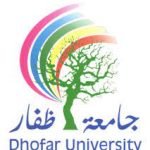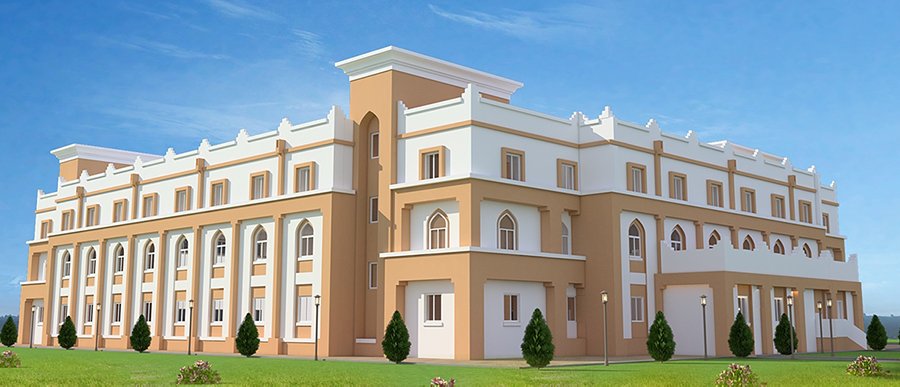
Dhofar University
About Company
Dhofar University stands as a prominent private institution in Oman’s Dhofar Governorate. Established in 2004, this respected university has developed into a leading educational institution known for academic excellence. Furthermore, it serves as an important educational hub in southern Oman, combining modern facilities with strong commitments to teaching and research quality. Located in Salalah, the institution offers a unique environment for academic professionals seeking meaningful higher education careers.
The university’s Salalah location provides a distinctive setting renowned for natural beauty and cultural richness. Additionally, the region’s moderate climate and scenic landscapes create an attractive living and working environment. Consequently, this combination of professional opportunity and quality of life makes Dhofar University particularly appealing for academics.


Institutional Profile and Accreditation
Established by ministerial decree, Dhofar University has evolved into a comprehensive institution. Importantly, it holds the distinction of being Oman’s first private university to achieve dual accreditation, demonstrating strong commitment to educational standards. The university campus spans substantial grounds featuring modern facilities that blend contemporary design with traditional Omani elements.
Regarding infrastructure, the campus features comprehensive amenities and robust technological systems. Moreover, reliable internet connectivity supports academic activities throughout the university grounds, facilitating both teaching and research endeavors.
Academic Structure and Programs
The university organizes academic programs through four primary colleges. The College of Arts and Applied Sciences offers humanities and science programs, while the College of Commerce and Business Administration provides business education. Meanwhile, the College of Engineering focuses on technical disciplines, and the College of Law completes the academic structure.
These colleges deliver numerous programs at multiple levels. Diploma programs emphasize practical skills development, whereas bachelor’s degrees cover various academic disciplines. Additionally, master’s programs provide advanced study opportunities, with instruction occurring in either English or Arabic depending on the program.
The university maintains a diverse student population representing various backgrounds. International students significantly contribute to a multicultural learning environment. Furthermore, the student body size supports a personalized educational approach that benefits both students and faculty.
Research Environment
Research represents a key institutional priority with dedicated support structures. Specifically, a specialized department oversees research activities and funding allocation. The university’s research center focuses on regionally important areas, addressing local challenges and opportunities through scholarly investigation.
The university demonstrates strong research output through various publications. Faculty members regularly contribute to indexed journals, and research grants support investigative projects across disciplines. Notably, the institution has received international recognition for scientific contributions, reflecting its research quality.
Regarding research infrastructure, the university provides necessary resources for scholarly work. Funding opportunities encourage academic investigation, while collaborative projects involve multiple disciplines and institutions. Consequently, this supportive environment facilitates meaningful research contributions.
Employment Environment
The university employs a substantial number of academic staff from diverse international backgrounds. This faculty community creates a genuinely international atmosphere, with most teaching staff holding advanced degrees in their respective fields.
Employment packages typically include competitive salaries with renewable contracts. Housing allowances assist with accommodation needs, while transportation support facilitates daily commuting. Additionally, comprehensive health insurance covers medical requirements for employees and their families.
Other benefits include substantial annual leave provisions and education support for employees’ children. Travel allowances enable international visits, and end-of-service benefits provide financial security. The application process utilizes online systems for efficiency, with equal opportunity employment practices ensuring fair consideration for all candidates.
Institutional Recognition
The university achieves respectable positions in international rankings, with global assessment systems acknowledging its institutional quality. Continuous improvement maintains competitive standing, while regional recognition reflects local impact and reputation.
Accreditation status undergoes regular review to validate educational standards. Quality assurance processes ensure ongoing compliance with requirements, and international partnerships enhance academic credibility. Together, these factors significantly contribute to the institution’s prestige and attractiveness.
Life in Salalah
Salalah offers a unique living environment characterized by natural attractions and moderate climate. The coastal location provides beach access and marine activities, while mountainous surroundings offer recreational opportunities. Particularly during the Khareef season, distinctive weather patterns transform the landscape, creating unique cultural experiences.
The city balances modern amenities with cultural heritage preservation, enhancing residents’ quality of life. Community life includes various social and cultural activities, and the manageable pace supports work-life balance. Furthermore, the reasonable cost of living compared to larger cities makes it financially appealing.
Why Choose Dhofar University?
The university offers multiple advantages for academic professionals. Institutional stability provides career security, while growth potential exists within developing programs. Research opportunities support scholarly development, and competitive compensation packages enhance financial well-being.
Support services facilitate academic work, and the collaborative environment encourages innovation. Professional development opportunities enhance career progression, while the natural environment promotes personal well-being. Cultural experiences enrich daily life, and the community size fosters meaningful relationships.
Application Process
Position requirements typically include relevant academic qualifications and teaching experience. Research background demonstrates scholarly capability, and language proficiency may be required depending on the discipline. The application process involves submitting detailed documentation, including curriculum vitae and customized cover letters.
The selection process may involve multiple assessment stages. Interviews evaluate institutional fit, while teaching demonstrations assess classroom capabilities. Reference checks provide external validation of qualifications and professional history.
Conclusion
Dhofar University presents compelling opportunities for academic professionals through its commitment to educational quality and supportive research environment. The institution’s development trajectory suggests growing opportunities, while its accreditation provides quality assurance. The diverse community creates a rich academic atmosphere, and the unique location offers distinctive lifestyle advantages.

